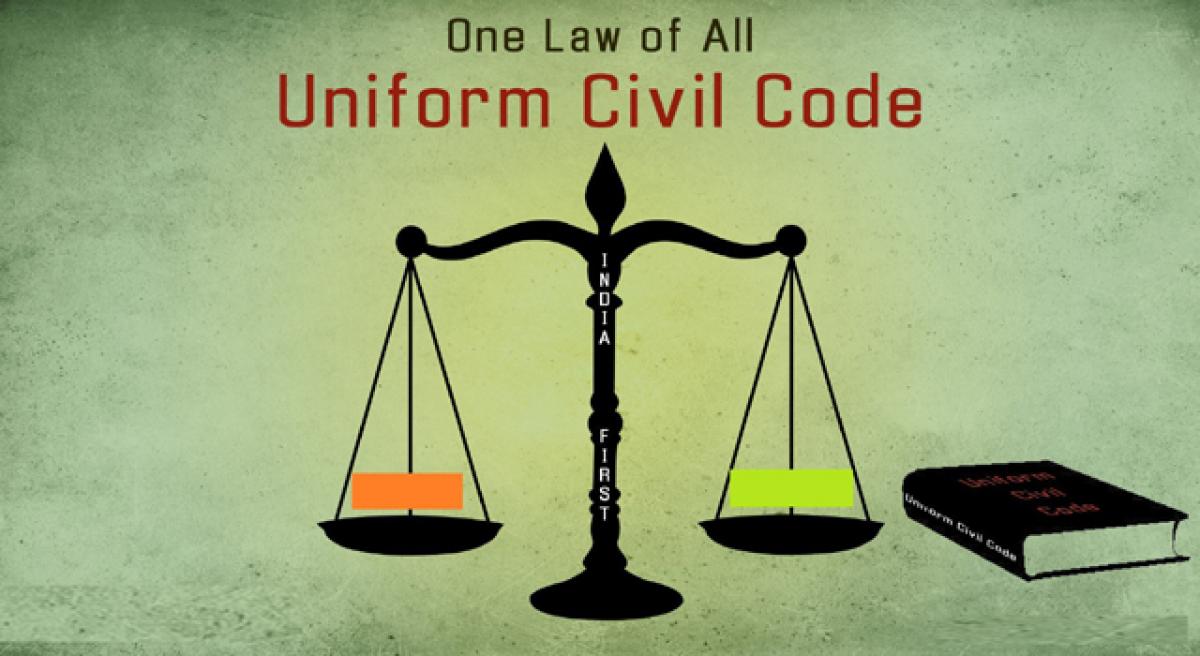The issue of Uniform Civil Code is center of political narrative & debate in our country for a long time & the courts of India have been issuing directions to successive governments to bring in a uniform civil code (UCC) as enshrined in “Article 44”.
They raised this issue prominently in 1985(Shah Bano case),1995(Sarla Mudgal case),2003 (John Vallamathom case) and also in 2015 where Supreme Court asserted that: “This cannot be accepted, otherwise every religion will say it has a right to decide various issues as a matter of its personal law and to maintain the decorum of the court it can’t be allowed“.
Bhartiya Janta Party, main political party of India and currently in power at center was the first to promise the implementation of UCC if it comes to power and the issue is part its 2019 Lok Sabha election manifesto.
BJP Rajya Sabha MP Kirodi Lal Meena has introduced private member’s bill, “The Uniform Civil Code in India Bill,2020” in Rajya Sabha for the constitution of the national inspection and investigation committee for preparation of Uniform Civil Code and its implementation throughout India, while Vice President Jagdeep Dhankar was in the chair. Bill got 63 votes in its favour and 23 against.
Uniform Civil Code is a proposal to implement uniform personal laws for all citizens, regardless of their religion, sex, gender and sexual orientation. Presently, the personal laws of various communities are governed by them religious scriptures.
The code comes under Article 44 of the Constitution which lays down that the state shall endeavor to have a Uniform Civil Code for the citizens throughout the territory of India.
Article 44 of the Directive Principles
The objective of Article 44 of the Directive Principles in the Indian Constitution is to address the discrimination against vulnerable groups and bring harmony among diverse cultural groups across the country.
Dr. B R Ambedkar, while formulating the Constitution had felt need of UCC but had decided that at the moment it should remain voluntary, and thus the Article 35 of the draft Constitution was added as a part of the Directive Principles of the State Policy in part IV of the Constitution of India as Article 44.
It was incorporated in the Constitution as an aspect that would be fulfilled when the nation is ready to accept it.
Origin of Uniform Civil Code
The origin of the UCC dates back to colonial India in 1835, when the British government submitted its report stressing the need for uniformity in the codification of Indian law relating to crimes, evidence, and contracts, specifically recommending that personal laws of Hindus and Muslims be kept outside such codification.
Increase in legislation dealing with personal issues in the far end of the British rule forced the government to form the B N Rau Committee to codify Hindu law in 1941. The mandate of the Hindu Law Committee was to examine the question of the necessity of common Hindu laws.
The committee, in accordance with scriptures, recommended a codified Hindu law, which would give equal rights to women. The 1937 Act was reviewed and the committee recommended a civil code of marriage and succession for Hindus.
Benefits of Uniform Civil Code
The UCC will protect vulnerable sections as envisaged by Ambedkar including women and religious minorities, while also promoting nationalistic fervor through unity. When enacted the code will work to simplify laws that are segregated at present on the basis of religious beliefs like the Hindu code bill, Shariat law, and others. The code will simplify the complex laws around marriage ceremonies, inheritance, succession, adoptions making them one for all. The same civil laws will then be applicable to all citizens irrespective of their faith.
Difference between civil laws and criminal laws
While the criminal laws in India are uniform and applicable equally on all, no matter what their religious beliefs are, the civil laws are influenced by faith. Swayed by religious texts, the personal laws which come into effect in civil cases have always been implemented according to constitutional norms.
Present day personal laws
Laws that apply to a certain group of people based on their religion, caste, faith, and belief made after due consideration of customs and religious texts. The personal laws of Hindus and Muslims find their source and authority in their religious ancient texts.
In Hinduism, personal laws are applicable to legal issues related to inheritance, succession, marriage, adoption, co-parenting, obligations of sons to pay their father’s debts, the partition of family property, maintenance, guardianship, and charitable donations.
In Islam, personal laws apply to matters relating to inheritance, wills, succession, legacies, marriage, wakfs, dowry, guardianship, divorce, gifts, and pre-emption taking roots from Quran.
